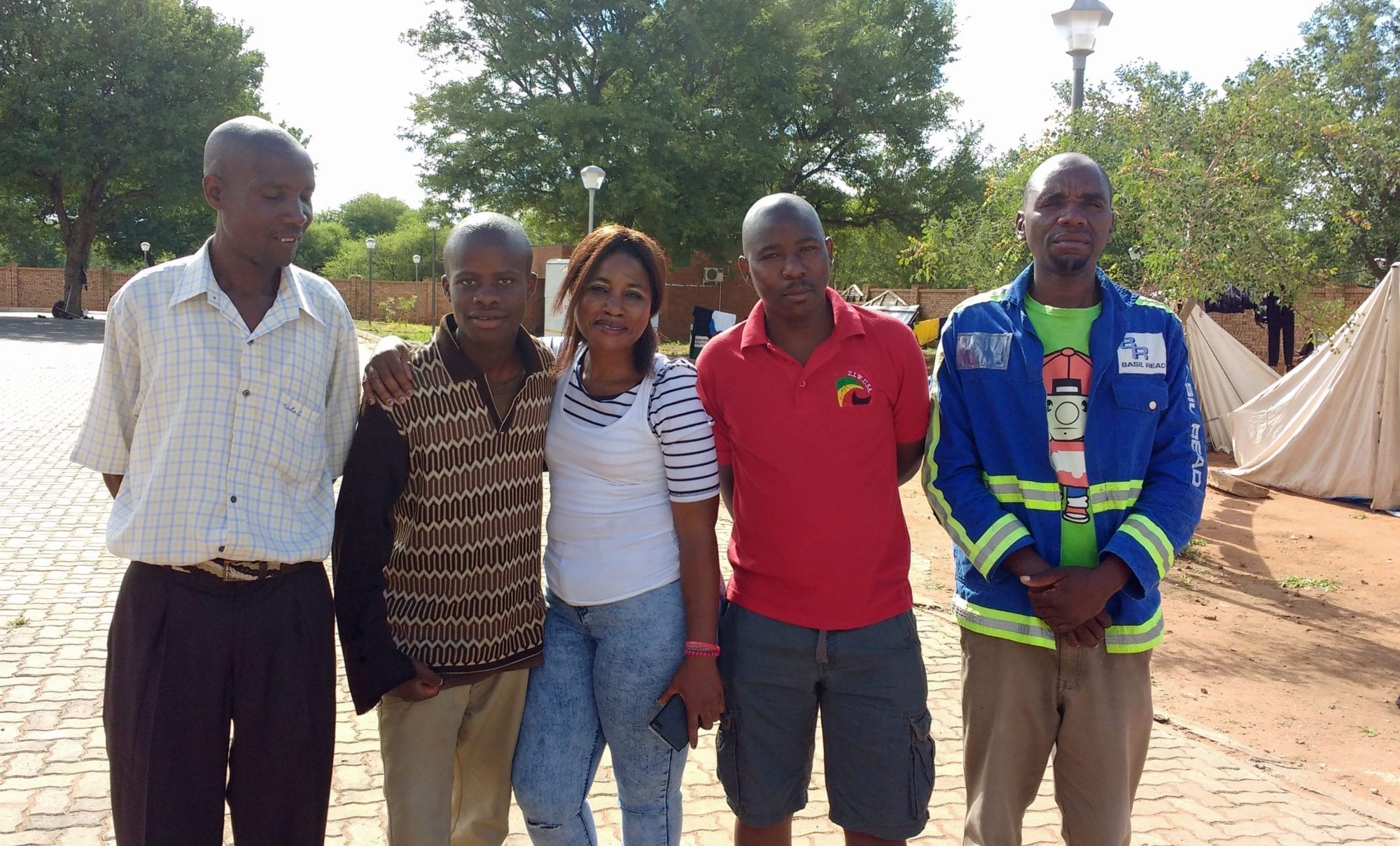Edias was 12 years old when he traveled from Zimbabwe to South Africa to look for a job in agriculture. Now in his mid-twenties, he and other farm workers had been working 12 hour days, 7 days a week, and paid less than half the legal minimum wage when they asked the corporate farm owner for a raise last year.
Instead, they were assaulted and clubbed by a group of men led by the farm owner. Their homes—they lived on the farm—were burned. Edias described to Solidarity Center staff how he and four other workers were kidnapped, tortured and interrogated for hours before police arrived. (Find out how the Solidarity Center achieved justice for some of the migrant workers.)
Edias and his co-workers are among 34 million African migrants, the majority of whom are in search of decent work across borders. While an estimated 25 percent of African migrants are in Europe, the majority of migrants remain within the continent, often working in the most dangerous, unregulated jobs where they are paid little and have few rights.
Migration Conference to Address Trade Union Responses to Worker Exploitation
From January 25–27, the Solidarity Center will co-host a conference in Johannesburg, South Africa, that will bring together union leaders, migrant worker rights advocates and top international human rights officials from 22 countries and 57 organizations from around the globe to share strategies for empowering migrant workers throughout Africa.
“Achieving Fair Migration: Roles of African Trade Unions and Their Partners,” will explore best practices for asserting a worker rights agenda into national, regional and global migrant worker policies and examine tactics for strengthening cross-border and cross-regional cooperation among unions and other migrant rights organizations.
Maina Kiai, United Nations Special Rapporteur on the rights to freedom of assembly and of association, will keynote the conference and discuss findings from the landmark report his office presented to the UN last fall. “Migrants have become a massive, disposable, low-wage workforce excluded from remedies or realistic opportunities to bargain collectively for improved wages and working conditions,” according to the report.
Vame Jele, who heads up the Swaziland Migrant Mineworkers Association (SWAMMIWA), will be among some 100 conference participants. SWAMMIWA advocates for migrant workers, especially for migrant miners, truck drivers, forestry workers, domestic workers and farm workers
“Beside networking and establishing partnership with unions, organizations and associations, we aim to learn and share knowledge especially on how we can advocate,” says Jele. He also seeks to raise awareness “and call for solidarity” around the issues of former miners and their families.
Migrant miners who contract silicosis and tuberculosis from working without safety equipment are sent back to their origin countries with no support for medical care. As a result, Jele says, many former miners are dying and their families are in poverty because they have lost their primary breadwinner. SWAMMIWA last month coordinated a policy dialogue around migration issues in Swaziland and advocates to harmonize policies and regulations in the South Africa Development Community (SADC) to abolish inhumane treatment of migrant workers and involve migrant workers in union bargaining.
‘African Unions Can Take a Lead in Shaping Labor Migration Policies’
The prevalence of informal jobs and the lack of recognition of migrant worker’s status “creates opportunities for exploitation and difficulties for unions to organize and represent migrant workers,” says Caroline Mugalla, executive secretary of the East African Trade Union Confederation (EATUC), who also will participate in the conference.
“And as women migrant workers become a larger component of migration, particular challenges arise as they tend to be relegated to the informal economy, face sexual harassment and gender-based violence in the workplace more often than men, and experience nationality and gender-based economic and social discrimination in the workplace.”
The “Fair Labor Migration” conference provides a forum for African trade unionists to coordinate strategies for reaching out to and empowering migrant workers, many of whom are part of the large and growing informal economy. Participants will discuss shaping a trade union agenda against xenophobia and racism, including strategies for tackling discrimination and xenophobia in unionized and non-unionized workplaces; the challenges of organizing and addressing migrant worker exploitation in the informal sector; increasing opportunities for migrant workers to exercise their rights and access justice; and labor protections.
“African trade unions can take a lead in helping shape the global governance of migration and promoting migrant worker rights at all levels of government,” says Solidarity Center Africa Regional Director Imani Countess.
“Government officials, businesses and corporate interests have sought to ‘manage’ the movement of migrants like everyday commodities through temporary migration programs and unregulated migration flows that benefit employers at the expense of workers.” The “Achieving Fair Migration” conference will provide a forum for exploring how to enhance African labor voices in global and regional migration governance policy.
The conference, co-sponsored by the African Regional Organization of the International Trade Union Confederation (ITUC-Africa), will include regional breakouts and opportunity for discussion around area-specific migration issues and hands-on strategic workshops with concrete action plans on union cross-border cooperation, organizing migrant workers and more.

